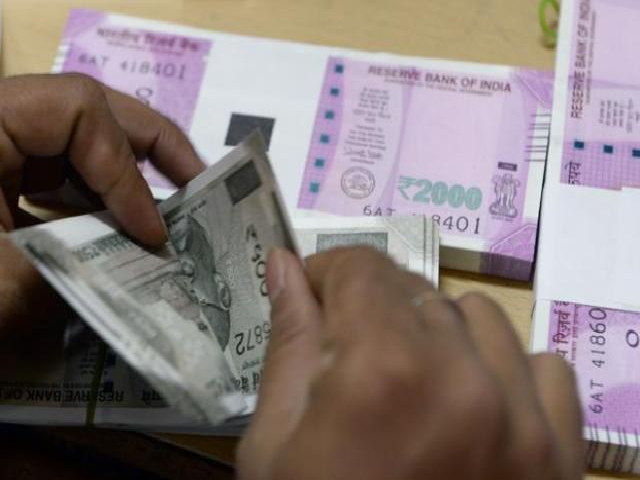After Centre Freezes Dearness Allowance, Employees Say They are no Longer Priority

Image Courtesy: Jagran Josh
The Central Government’s decision to freeze the dearness allowance till July next year is now beginning to pinch its employees after they received their salaries with deductions last week. Government employees allege that the move has increased their hardship during a pandemic.
The extent of its impact can only be understood by breaking down how it contributes to the overall salary. An average government employee’s salary consists of basic pay, house rent allowance, conveyance allowance and a slew of other allowances specifically applicable to the departments that employ them. Dearness allowance, originally conceptualised in Nehru’s time as Prime Minister, is paid according to the existing rate of inflation in order to mitigate its impact. It is usually revised twice a year, before the festivals of Holi and Diwali.
Requesting anonymity, a central government employee with the Directorate of Estates told NewsClick: “When I got the message (salary credit text) from my bank, I found that the government had deducted almost Rs 6,000 this month. I am not entitled to house rent allowance as I live in a government colony. I am the sole breadwinner for my family. How does the government think that we can survive with installments, school fees and other expenses that one literally cannot avoid?” he asked.
Another employee told NewsClick that government employees generally invest in various schemes and fixed deposits once they receive their gratuity after retirement. “Now, interest rates are at an all time low. So, their dependency on pension is greater,” he added.
Similar sentiments were echoed by employees federations who said that cutting salaries should have been the last resort but the government made it their first. Shiv Gopal Mishra, General Secretary of All India Railway Men Federation, one of the largest railway employees unions, said the move was unexpected, unilateral and illogical. Mishra is also the secretary of the Joint Consultative Machinery on the side of the staff; the body serves as a negotiator between employees and the Centre.
According to Mishra the government should have discussed the move with its employees before taking such a “mammoth step. It is a big blow to 48 lakh central government employees and 65 lakh pensioners. Railway employees are working tirelessly to ensure that grains and other necessary items are delivered without any delay. The postal workers are also doing their part. The government may save Rs 42,000 crore from the move but it comes at a huge cost. It will be highly demoralising for employees who are delivering essential services even during a pandemic,” he added.
R.N. Parasher, General Secretary of the Confederation of Central Government Employees and Workers and also a member of Joint Consultative Machinery, said the move came at a time when they were expecting some relief from the Centre. “The employees were already volunteering a salary of one month for the crisis. This is a huge step. It was never taken even during national emergencies. The country fought three wars, faced several floods, earthquakes and famines but a step of this magnitude was never taken. Think about the pensioners who are dealing with ailments with the ever-increasing cost of healthcare. Mind you, this is aside from daily expenses. The state governments will also follow the path as they also design salaries based on the recommendations of the pay commission,” he said.
Parasher added that the Centre had not stopped one installment of the allowance but three, and that there was no guarantee “that it will be restored later. This is such a crisis that we cannot even hold demonstrations or protests.” He mentioned that the Centre may end up saying Rs 38,000 crore while state governments may save close to Rs 82,000 crores.
C.H. Venkatachalam, General Secretary, All India Bank Employees Association maintained that the step was an assault on rights, as basic as wages. He mentioned that the allowances part of their wages were due to services not being up to the mark and as compensation. “For example, a medical allowance is given because the medical infrastructure is not so good. Similarly, the transport allowance is given if I am spending a substantial amount on commuting. In an inflation-based economy, the government has removed riders which saves one from inflation. It is just a matter of priorities. Amid this unprecedented crisis, it is going ahead with a new parliament building which is likely to cost Rs 20,000 crore. Should it really be a priority?”
Get the latest reports & analysis with people's perspective on Protests, movements & deep analytical videos, discussions of the current affairs in your Telegram app. Subscribe to NewsClick's Telegram channel & get Real-Time updates on stories, as they get published on our website.
























